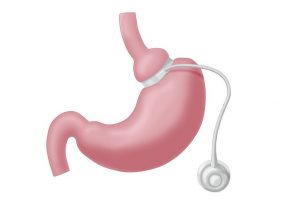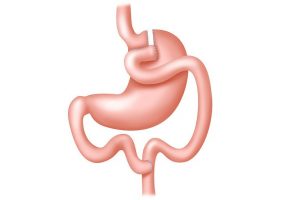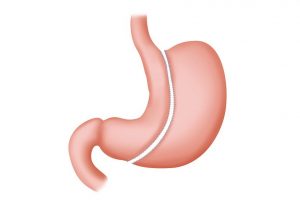10 bariatric surgery facts

In this article we will describe 10 facts about bariatric surgery.
1. What is bariatric surgery?
Bariatric (or weight loss) surgery is a treatment for people who are very obese. It is also called bariatric or metabolic surgery. Significant and sustained weight loss can be achieved.
2. Does it lead to long-term weight loss?
Yes. In fact, it is the only treatment that has ever been shown to lead to long term weight loss in obese people – and make them live longer.
3. Can it get rid of long-term conditions?
Yes. It the only treatment that can cure 4 serious diseases:
- Type 2 diabetes – can go away, but you will still need to check for it intermittently
- High blood pressure – blood pressure can return to normal, and thereby kidney function if the patient has CKD as well
- Liver disease – such as ‘fatty liver’ can go away
- Musculoskeletal problems – it can prevent hip and knee replacements; or make you suitable for that operation if you have severe pain – and a surgeon has previously said you were not fit for surgery because of your weight.
4. How big an operation is it?
It is a major operation, and should only be considered after trying to lose weight with a healthy diet and exercise..
5. Does the NHS provide bariatric surgery?
It can do. The NHS provides bariatric surgery if:
- You have a body mass index (BMI) of 40 or more, or a BMI between 35 and 40 and an obesity-related condition like type 2 diabetes or high blood pressure
- You have tried other weight loss methods but have struggled to lose weight (or keep it off)
- You agree to long-term follow-up after the operation – such as making healthy lifestyle changes and attending regular check-ups.
6. Where is it done in the UK, and how do I get referred?
There are about 45 centres in the UK. Why not speak to your GP if you would like to be considered for weight loss surgery. They can refer you to a local weight loss surgery centre. There will be several health professionals there to help you: surgeon, nurse, dietitian and psychologist.
7. Is it free on the NHS? And who follows up patients?
It can be free on the NHS. But you can have surgery done privately, although this can be expensive. If you go privately, check the surgeon is a member of the British Obesity & Metabolic Surgery Society (BOMSS). MyHSN does not advise people having this type of surgery abroad. This is not due the quality of surgery (that admittedly cannot be checked) but the lack of follow up.
Patients need very careful long-term follow up, with regular checks by specialised nurses and dietitians.
Types of weight loss surgery
There are several types.
8. What is a gastric band?
- Gastric band – a band is placed around your stomach, so you do not need to eat as much to feel full

9. What is a gastric bypass?
- Gastric bypass – the top part of your stomach is joined to the small intestine, so you feel fuller sooner and do not absorb as many calories from food

10. What is a sleeve gastrectomy?
- Sleeve gastrectomy – some of your stomach is removed, so you cannot eat as much as you could before and you will feel fuller sooner.

Talk to the surgeon, nurses and dietitians in the team to decide which is best for you.
Summary
We have described 10 bariatric surgery facts. It is a very effective treatment. And there is a lot the NHS can do to help you, if you are overweight or obese.
Other resources
- Read more on the NHS website about the types of weight loss surgery.
- This US website provides other useful information.
- This video explains how a gastric band is done.
- British Obesity & Metabolic Surgery Society (BOMSS) is the UK’s society of recognised bariatric surgeons and their website has lots of useful information.

